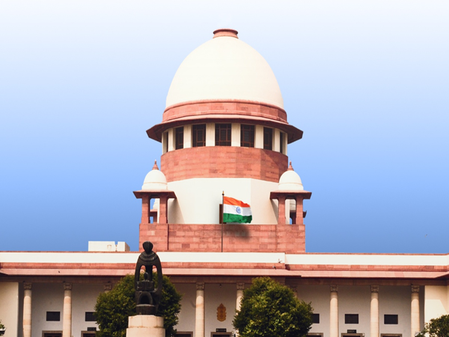
New Delhi: The Supreme Court on Tuesday agreed to hear, on July 24, the Maharashtra government’s petition challenging the Bombay High Court's decision to acquit 12 individuals accused in the 2006 Mumbai train blasts case.
A bench led by Chief Justice of India (CJI) B.R. Gavai allowed the urgent listing of the matter after Solicitor General Tushar Mehta flagged it for immediate attention, citing its “serious nature” and the “important issues” it raises.
The plea comes in response to a landmark verdict delivered on Monday by the Bombay High Court, which acquitted all 12 accused—five of whom had been sentenced to death and seven to life imprisonment—citing serious flaws in the prosecution’s case.
A division bench of Justices Anil Kilor and S. Chandak, while ordering the immediate release of the accused, criticized the investigation, observing that the prosecution failed to even identify the type of explosives used in the attack. The court also ruled that the confessional statements extracted from the accused were inadmissible, noting, “On all tests relating to voluntariness and truthfulness of the confessional statements, the prosecution failed.”
The accused, who had spent 19 years in prison, were able to prove they had been tortured into giving false confessions.
Reacting to the acquittals, Maharashtra Chief Minister Devendra Fadnavis called the verdict “shocking” and announced the government would approach the Supreme Court to challenge it.
The 2006 Mumbai train bombings occurred on July 11, when seven powerful blasts ripped through packed local trains within an 11-minute span, killing 189 people and injuring over 800. The attack brought Mumbai to a standstill and was one of the deadliest terrorist incidents in India’s history.
In 2015, a special court convicted 12 individuals in the case. Five of them—Faisal Shaikh, Asif Khan, Kamal Ansari, Ehtesham Siddiqui, and Naveed Khan—were sentenced to death, while the remaining seven received life terms.
According to the prosecution, the attack was orchestrated by Pakistan’s intelligence agency ISI and executed by operatives of the Pakistan-based militant group Lashkar-e-Taiba, with support from the banned Indian outfit Students' Islamic Movement of India (SIMI).
The Supreme Court is now set to take up the matter for hearing on Thursday.
With inputs from IANS